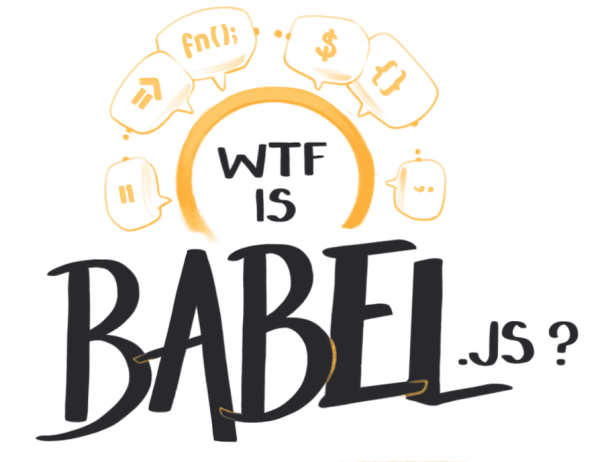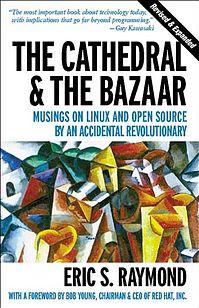A Chat with Henry Zhu on OSS & Gift Economies
Evergreen
🌳Last tended Apr 30, 2020
Anthropology
Talks & Podcasts
The Web
Web Development
Economics
Metaphors
What can Open Source Software learn from the anthropology of gift economies?
I got the chance to chat with Henry Zhu on his Maintainers Anonymous podcast.
It's a show about people who maintain things in the world. Whether it's code, cities, infrastructure, or museum archives, someone has to keep the decks clean and the engine stoked.
I'm not a maintainer (the only thing I reliably maintain is an obsessive tea habit), but I went on to chat to Henry about the overlap between the
Gift theory, reciprocity, and economic anthropology are all side obsessions of mine. I originally trained as a cultural anthropologist, and it's still an enormous part of how I understand and operate in the world.
Like any good cult, once you're indoctrinated you can never leave.

Henry and I began discussing the parallels between gift economies and open source software (OSS) last summer.
At the time I barely knew anything about OSS. Which made me fairly typical. 99.9% of the world haven't a clue about the rich, dramatic cultural history of Linux, or Xerox PARC, or the browser wars. Despite the fact 99.9% of the software we all depend upon is built using open source projects. It's invisibility and pervasiveness alone makes it worth a closer look.
Henry earned his stripes in the OSS world as the core maintainer of
The Babel project, and Henry as its steward, is a fascinating case study in the open source software economy and where it's headed.
Not sure what Babel is?
Take a quick look at my

Our chat is wide ranging discussion where we're both thinking out loud and exploring ideas, rather than coming to insightful or profound conclusions. We're doing some follow-up episodes in the coming months as well.
Things we Mention in the Episode
- Emic vs. Etictypes of research in anthropology
- The three types of reciprocityproposed by anthropologist Marshall Sahlins: Generalised, Balanced, and Negative. Originally outlined in his 1972 bookStone Age Economics
- The Kula Ringof the Trobriand islands as the prototypical anthrolopogy example of a.Gift Economy
- The All Contributorssystem that acknowledges open source contributions for a wide range of skills
- Negativevs.positivefreedom - Freedom from external constriants vs. the ability to act out of free will
- New tools that are enabling OSS communities – Patreon,Github Sponsors, andOpen Collective
- How can we make the interactions and exchanges between contributors and maintainers more personal and relationship-based?
- Developers have enourmous cultural power in the world that is rarely acknowledged in the community. What developers value and believe comes out in what tools get built, which in turn shapes how culture evolves.
- The movement and the presumed value of quantifiying everything.quantified self
- Epistemologyand how we know what we know. The value of tacit, subjective truth in addition to explicit, objective truth. We're in a historical moment where the emphasis on the disembodied rationalist view has drowned out the value of embodied, personal knowing.
- Personal Knowledgeby Michael Polanyi
- Metaphors We Live Byby George Lakoff
- Traditional hacker culture glorifying programming as a cerebral, disembodied activity. We haven't yet figured out how to make our digital tools embodied. Which carries over into how we experience social relationships through them.
- Tools for Convivialityby Ivan Illich
- The more professionalised skills become, the harder it is for people to join. Programming at least tries to knock down those gatekeepers and trumpets the narrative that we roll out the welcome mat for people. Open source often acts as that open door.
What I've Been Reading and Researching
Papers and Talks
- Open source beyond the marketby David Heinemeier Hansson
- The Moral Economy of Digital Giftsby Dave Elder-Vass
- The Plural Economy of Gifts and Marketsby Ioana Negru
Books

The Cathedral and the Bazaar
Eric Raymond
Perhaps the most infamous book on this topic, Raymond gives an insiders view of the history and practice of OS from the 1940s up to 1999. He proposes a foundational philosophy for the community, and a series of maxims for effective OS work.

Coding Freedom: The Ethics and Aesthetics of Hacking
Gabriella Coleman
A distinctly anthropological exploration of OS, Coleman covers its history, philosophy, and cultural structures. Coleman is anthropologist specialising in open source hacker culture, Anonymous, 4chan, and all their tangential worlds

The Gift
Marcell Mauss
An anthropological classic on gift theory and gift economies. Published in 1923, Marcel Mauss explores how systems of exchange work in traditional societies around the world in relation to politics, power, and kinship.

Stone Age Economics
Marshall Sahlins
A comparive study of economic structures exploring the wide variety found among hunter-gatherer societies. Discusses the meaning of affluence, material wealth, and how comminities build rituals around exchange and acts of reciprocity .

Economies and Cultures: Foundations of Economic Anthropology
Richard Wilks
Okay, yes it's a textbook. But it's not as dry as most and gives a sweeping tour through the history of anthropological thought on economics, value systems, and social exchange.